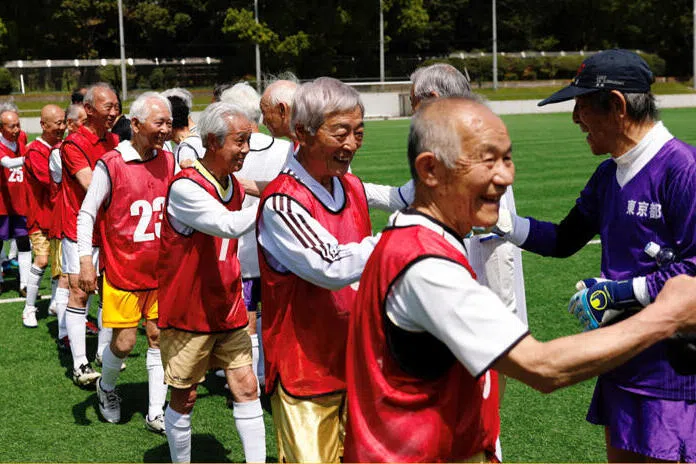For subscribers
I’m 62. Stop telling me I’m old
As life expectancy continues to extend, chronological age is telling us less and less about people’s physical and cognitive abilities.
Sign up now: Get ST's newsletters delivered to your inbox

In Japan, older people are fitter now than 20 years go, with men in their 80s forming a soccer team.
PHOTO: REUTERS
We have reached Peak 65: There are more than 4.1 million Americans turning 65 each year through 2027, a record surge. Baby boomers will have all sorts of ways to mark the occasion, but underneath the cake and usual Social Security jokes lies the unease about the fact that the birthday boys and girls will now be officially “old”.
American society uses all sorts of markers to define old age. The Age Discrimination in Employment Act began to protect me from ageism in the workplace when I turned 40. I qualified as “near elderly” under the rules of the Department of Housing and Urban Development when I turned 50, and happy day, I started receiving a senior citizen discount at my local Harris Teeter grocery store the day I turned 60 – though for some reason, only on Thursdays.


